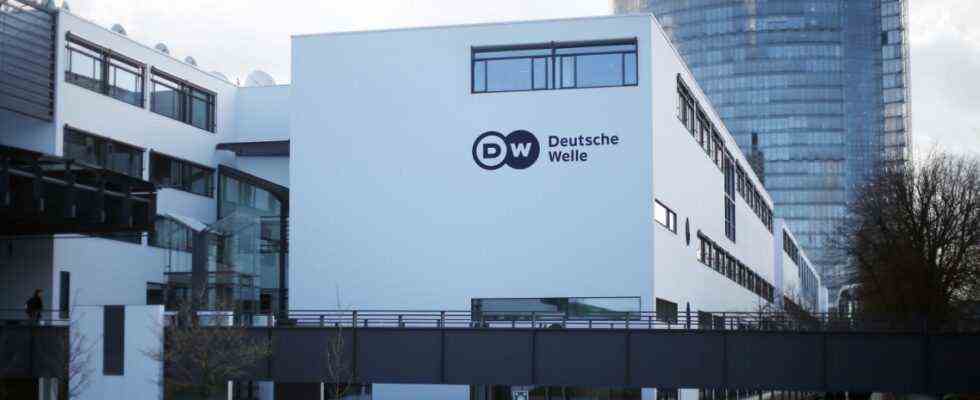Deutsche Welle (DW) had appointed two external investigators to investigate allegations of anti-Semitism against employees. Sabine Leutheusser-Schnarrenberger and Ahmad Mansour now had two weeks to deal with the affair, which became more and more extensive after further revelations. On Friday, the former Federal Minister of Justice and acting anti-Semitism commissioner for North Rhine-Westphalia and the Israeli-German psychologist presented the first interim results to the distribution committee of DW’s Broadcasting Council – the station’s press release was vague. The chairman of the committee, Elisabeth Motschmann, said that “we expect a zero tolerance line” with regard to Israel hatred and Holocaust denial, the chairman of the Broadcasting Council, Prelate Karl Jüsten, announced a special session of his panel on the allegations. Apparently there is still a lot to be clarified at Deutsche Welle.
One Research by the SZ had documented at the end of November that members and employees of the Arab editorial team had made violent anti-Semitic statements on private accounts in social media and in text contributions for other media. One member of the editorial team called the Holocaust an “artificial product”, and a colleague of his had written about a “cancer” in connection with Israel that had to be cut out. Unlike earlier allegations against the editors – In the past there had been repeated complaints about abuse of power and nepotism, but also about ideological distortions, for example in reporting on the Syrian war – The station management now reacts quickly: The employees concerned have been released and an external investigation has been initiated.
DW also didn’t look carefully when selecting partner channels
But as soon as this had started, further allegations against the foreign broadcaster, which was financed directly from tax revenues with 390 million euros, came to light. So the question arose whether something was not going structurally wrong at DW: research by image, world and Vice showed that Deutsche Welle took a similarly superficial view of the choice of partner media in the extremely sensitive region of the Middle East as it did when it came to recruiting staff. The Jordanian broadcaster Roya TV had distributed some violent anti-Semitic cartoons and content, and similar accusations were soon made against an Algerian, a Lebanese and a Palestinian broadcaster with which DW works.
That director Peter Limbourg recently presented one of the editors-in-chief with a “Freedom of Speech Award” seemed unfortunate, as was the fact that DW first defended the collaboration in the case of Roya TV, only to suspend it a little later. In addition, employees of the station made journalists aware of anti-Israeli articles in the Arabic edition of Vice attentive – in a heated media debate, not a few understood this as a rhetorical diversionary maneuver, as “whataboutism”.
In the end, Limbourg announced changes in several interviews. “We will sharpen our code of conduct, the code of conduct, again,” he said about the Jewish general. “When it comes to recruiting, we will look even more closely in the future.”
Now wants to tighten the code of conduct: DW director Peter Limbourg.
(Photo: Oliver Berg / dpa)
However, not all employees at the editorial offices in Berlin and Bonn are convinced that the station management is genuinely willing to get to the bottom of the causes of the current crisis. “In addition to individual personnel considerations, the responsibilities at all management levels must be examined,” demanded editorial members organized in the Verdi union, for example, and pointed out that criticism from colleagues “should no longer be understood as a lack of loyalty”. In the past, employees who had raised grievances internally often felt bullied.
Even after the most recent revelations, a fundamental cultural change does not seem to be in sight: At crisis meetings, the station management has shown structural deficits, reports several SZ employees, on the contrary, senior editors have called for an “internal solidarity” against the “unfair” criticism from outside. Leutheusser-Schnarrenberger and Ahmad Mansour want to present a final report at the end of January.

